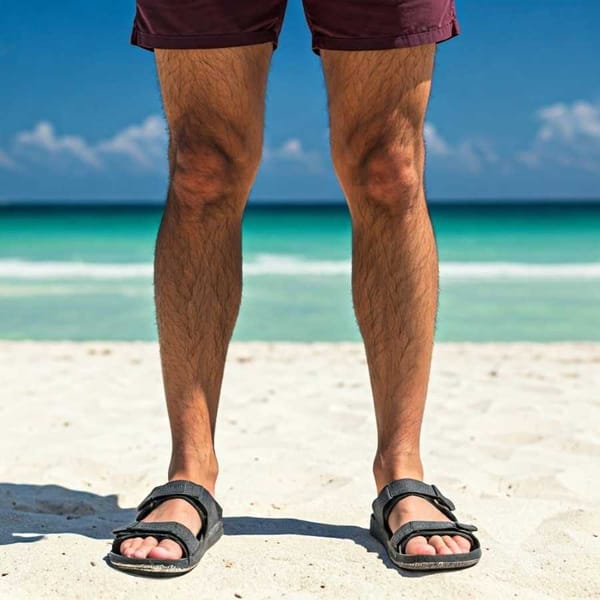Why consumers cannot be charged minimum consumption in bars
This is how the law protects you and in this article you will learn about your rights as a consumer and why you cannot be charged for minimum consumption in bars.

How legal is it for bars and nightclubs to ask for a minimum consumption or reserve the right of admission? Read on to find out what your rights as a consumer are and how you can defend yourself.
Is minimum consumption legal?
The minimum consumption applied by some bars, nightclubs and restaurants is prohibited. According to Article 58 of the Federal Consumer Protection Law, demanding tips or unjustifiably increasing costs are actions that violate your rights as a consumer.
Suppliers of goods and services... may not establish any preferences or discrimination with respect to service applicants, such as selection of clientele, conditioning of consumption, reservation of the right of admission, exclusion of persons with disabilities and other similar practices.
In the case of persons with disabilities, establishments may also not increase their prices or rates for the implements they may need.
In no case may such suppliers apply or charge extraordinary or compensatory fees to persons with disabilities for their medical, orthopedic, technological, educational or sports equipment necessary for their personal use, including assistance animals, such as guide dogs in the case of blind or visually impaired persons.
Can they reserve the right of admission?
Another very common practice, especially in nightclubs in the city, is to reserve the right of admission, where the famous " concierge" can decide who enters and who does not, however, conditioning access is not allowed either. The same article 58 states that no establishment can deny you entry.
The supplier of goods, products or services may not deny or condition them to the consumer for reasons of gender, disability, nationality, ethnicity, sexual preference, religion or any other particularity. Likewise, they may not establish any preferences or discrimination with respect to service applicants, such as selection of customers, conditioning consumption, reservation of the right of admission, exclusion of persons with disabilities and other similar practices, except for reasons that affect the safety or tranquility of the establishment, of its customers.
When is the right of admission allowed?
In the only cases in which establishments could reserve the right of admission would be in those where the person or persons who want to access, put at risk or endanger the clientele. For example, now with the pandemic, there are sanitary measures that establishments require for the safety of their consumers to reduce the risk of COVID-19 infection, and in case of not complying with them, the place could reserve the right of admission and it would be guaranteed by law.
How do I defend myself if I was a victim?
If you were a victim of any of these actions you can report the establishment to denunciasprofeco@profeco.gob.mx. In the email you must share your complete information for your identification, as well as the reason why you consider that your rights were violated. Finally, you must write down the name of the place, along with its complete address: city, street, number, neighborhood and zip code. After your case is reviewed, Profeco will contact you and assign you a folio and inspectors from the agency will verify the actions of the denounced business.
Six tips to avoid excessive tipping
The gratuity is voluntary, if an establishment demands it, it can be fined up to 2.1 million pesos; 12% of places verified by Profeco have incurred in offenses such as including a tip in the bill.
Tipping is a voluntary gratuity given in the case of good service, so no establishment has the right to determine an amount for it or include it in the bill without your consent. In Mexico there is no law requiring the payment of the tip , but due to ignorance several are the establishments that require this gratuity through fixed amounts ranging from 10 and up to 25%.
The Federal Consumer Protection Law (LFPC) establishes that the prices of goods and services offered must be respected, in this logic the tip is not part of these concepts, so requiring it is outside the law. Failure to comply with this legal provision has penalties and fines ranging from several hundred to millions of pesos, depending on the resistance or not of the establishment to compensate consumers.
This practice, as well as the conditioning of tables for minimum consumption or bottles, is illegal, so under no circumstances should you allow them to abuse you. If when reviewing your bill you notice that they added the tip without your authorization, you should do the following.
Ask the waiter why there is a difference in the total of your bill and ask him to show you again the menu with the prices of each product.
If he/she tells you it is the tip, refuse to pay such an imposition and ask to speak to the person in charge of the place, such as the manager or the waiter captain.
Explain that you know your rights, that tipping is voluntary and you cannot be forced to pay it. If the manager gives you the same argument as the waiter, and claims that it is company policy to demand a gratuity, tell him that you know very well that only you as the consumer can determine whether or not the service warrants a gratuity.
If the person in charge still wants to force you to pay a gratuity and does not let you leave the place, tell him that he cannot keep you, since doing so is an illegal deprivation of liberty. In this case you can go to a patrolman, show him the ticket and say that you are willing to pay the amount of the bill, but not the tip, since the uniformed officer has the power to protect you and demand that you be let out of the establishment once you have paid the bill.
File a complaint with Profeco, this is important since in the event of a complaint, the Attorney General's Office orders expeditious verifications, and it is faster when there are several complaints from the same place. The complaint can be made by calling the Consumer Telephone Number 5568 87 22 in the Federal District and metropolitan area, or 01 800 468 8722 from the interior of the Republic. This number works 24 hours a day, 365 days a year, so it does not matter when you want to make your complaint. Preferably write down the name and address of the establishment, and demand your ticket or receipt, if the place does not give it to you, it is also incurring in legal faults.
If you were forced to pay the tip because you were intimidated, you can also report this fact to Profeco and recover the money paid for the tip, as long as you keep the ticket of the operation.
Sources: Profeco, El Sol de Mexico




